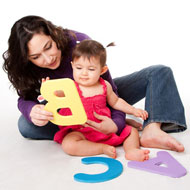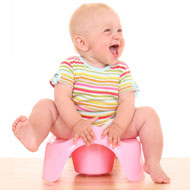- General Articles
- General Pregnancy Questions
- Baby Growth
- Pregnancy Diet
- Miscarriage
- During Pregnancy
- Twin Pregnancy
- Toddler Meals
- Home Remedies During Pregnancy
- Breastfeeding
- Pregnancy Week By Week
- Pregnancy Tests
- Ectopic Pregnancy
- Pregnancy Signs and Symptoms
- Pregnancy Stages
- Potty Training
- Fetal Development
- Preschooler
- Postpartum Depression
- Toddler Illness
- Baby Care
- After Pregnancy
- Molar Pregnancy
- During Delivery
- Beauty and Style
- Pregnancy Clothing
- Preconception
- Fertility
10 Tips for Successful Parenting
Whether you are a mom or a dad, parenting is probably one of the most important and challenging jobs that you will ever have to tackle. Anyone can become a parent, but being a good parent is another task altogether! The skills you have to acquire for successful parenting are numerous and they keep changing, depending upon your child's age and needs. As your children grow and mature, you will probably have to adjust your methods, to suit them. Nevertheless, good parenting starts from the beginning, i.e., right from the time your little one is just a baby.
Of course, there is no particular "right" way of raising a child, though it is possible to avoid a few common parenting mistakes. Given below are 10 tips for successful parenting -
- Show your love to your children: Make it a point to let your kids know exactly how much you care about them. Just telling them that you love them and they mean the world to you is not always enough.
Hug and kiss them each day as it makes them feel more secure in your love. - Spend time with your kids: Children want their parents' time and attention more than anything else. When your kids behave in an undesirable way, it is probably just to get your attention. To avoid any such unwanted behavior make sure that you spend at least a few hours of quality time with your kids. Do fun things or even regular household chores together, which could include taking a walk, reading, playing, cleaning the house, cooking, and so on.
- Listen to your children when they talk: Let your child know that what he says is more important to you than anything else. Very often, kids feel happier just knowing that you are listening to them, even if they do not always get what they want. You could help your children make it through tough times by listening to them talk about their problems, fears and insecurities.
- Make your children feel safe: There are several factors that could cause your child to experience fear and anxiety. Try to read such signs in your child and let them know that they can come to you with just about any problem they have. Comfort them when they are scared and ensure them that you've done your best to protect them.
- Maintain balance and order in your children's lives: Good parents have to be firm when it comes to several things like studies, sports, extracurricular activities, fun time and so on. Set up a schedule that your child can follow everyday and make sure that your kid sticks to it. Do not dedicate too much time for any one activity; maintain a balance of all the different activities your kid participates in and enjoys.
- Praise your children: When it comes to motivation, praise is often very effective. Tell your kids how proud you are of something they have done or learned. This will encourage them to excel further.
- Provide the right nutrition: Feeding is a very important part of baby care, which is why most parents are very particular about what their kids eat for the first years of life. However, as kids grow older, they may show preference for junk food, sweets and greasy foods. Feeding your child properly is very important right through his years of growth and development. Make sure that your child begins the day with a heavy and nutritious breakfast, followed by a light mid-morning snack and then lunch. Your child should also have an evening snack before having a light dinner. Each meal should contain the required balance of vitamins, proteins and carbs. Teach your child the importance of eating well-balanced and nutritional meals.
- Criticize actions, not your child: Avoid using phrases like "You were bad" or "you just don't listen" when correcting your child. However, do let them know how unhappy you are about what they did. You could use statement like "you really should not do that as it isn't safe".
- Redirect your children, instead of punishing them: Spanking and grounding are not the ideal ways to disciple a child; they only make kids stop undesirable behavior out of fear. Talking to your child and explaining the consequences of his actions should be more effective than punishing him. Regardless of how old your child is, take the time to explain why he should (or shouldn't) act in a certain way. This way, your child will do the right thing even when you are not around.
- Be consistent: Lay down the rules or code of conduct with your kids, right in the beginning and ensure that all the family members (including you and your partner) adhere to them. It is important that both parents enforce the same rules with everyone in the family.
Raising children is not an easy job and no one is expected to get everything right in the first go. You are bound to make a few mistakes, but try your best to learn from them. Seek help from close family and relatives or your family doctor if required.
References
http://www.betterhealth.vic.gov.au/bhcv2/bhcarticles.nsf/pages/Baby_care_safety_issues
Read more articles from the Baby Care Category.



 7 Must-Haves Before Your Baby Arrives
7 Must-Haves Before Your Baby Arrives Bonding Games for Babies
Bonding Games for Babies DIY Baby Bath Towel Apron
DIY Baby Bath Towel Apron Common Late Pregnancy Fears
Common Late Pregnancy Fears